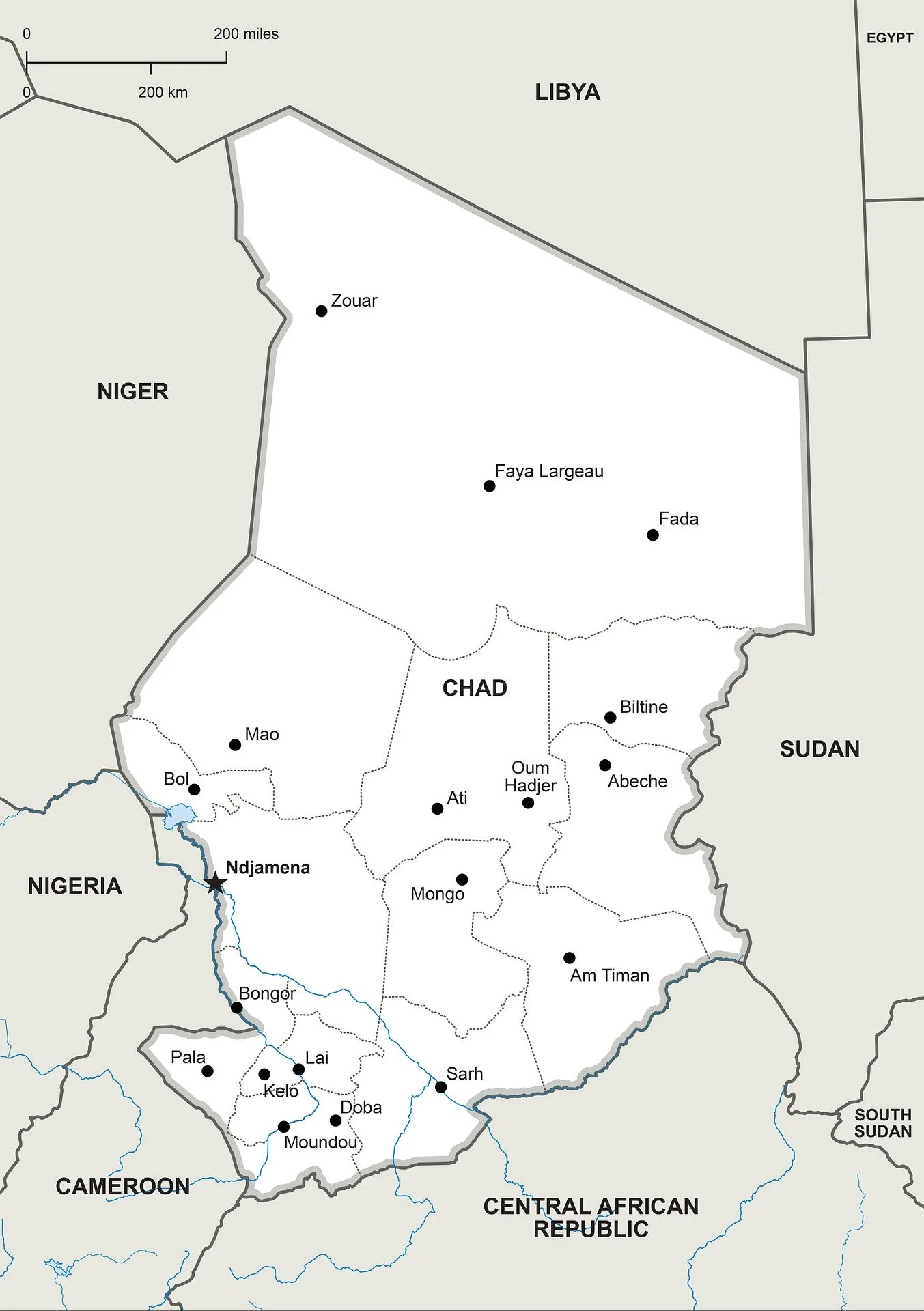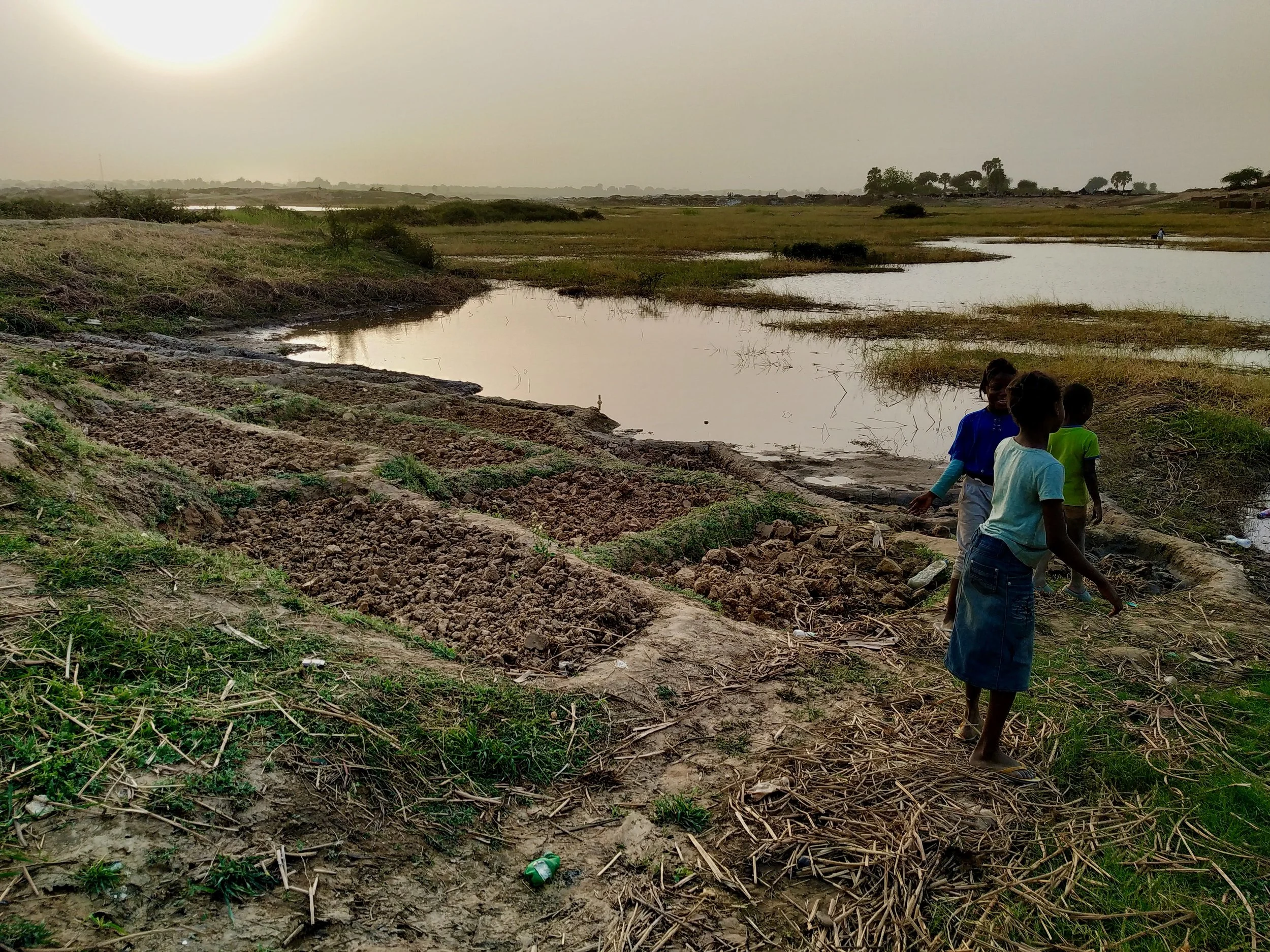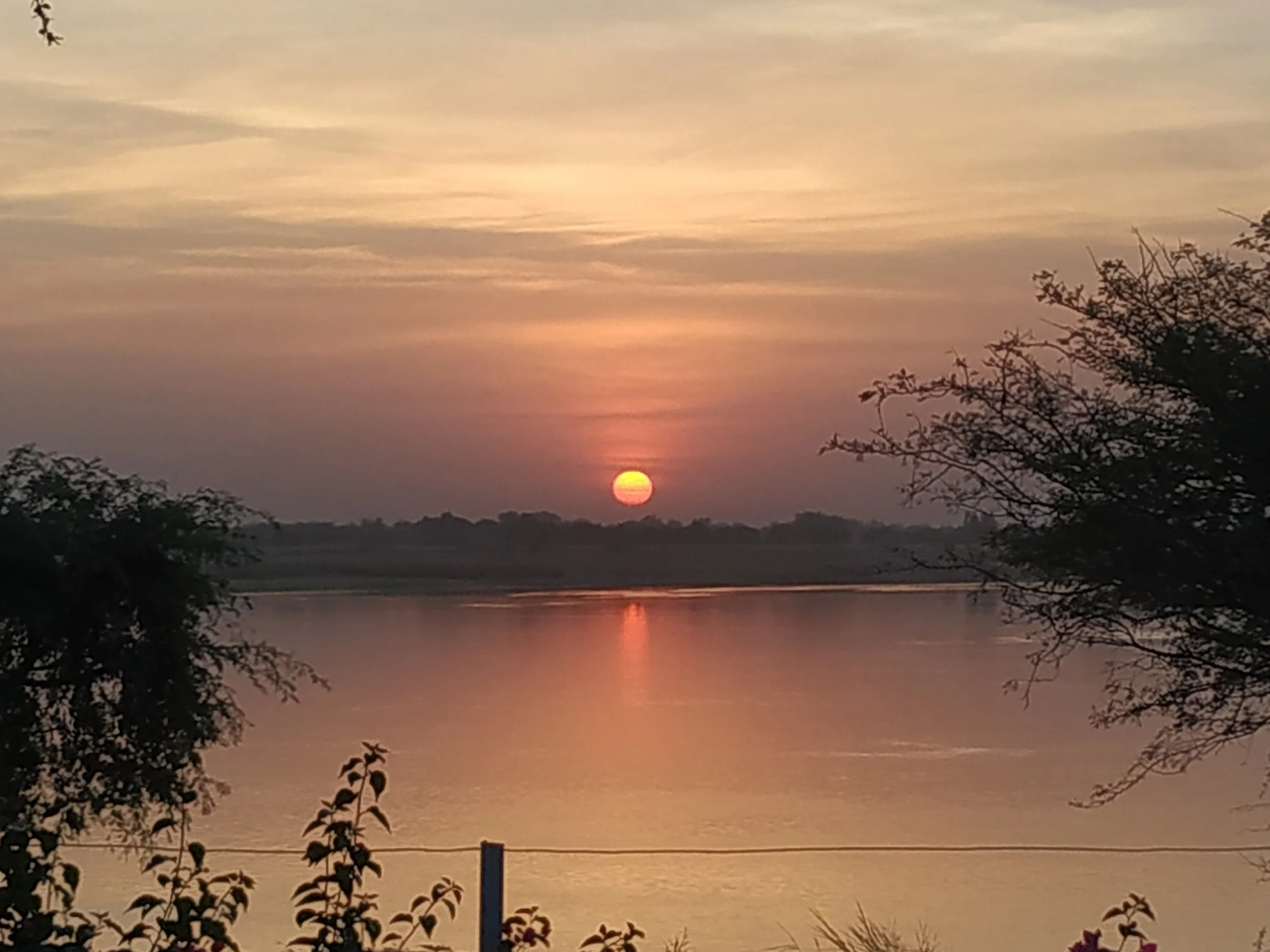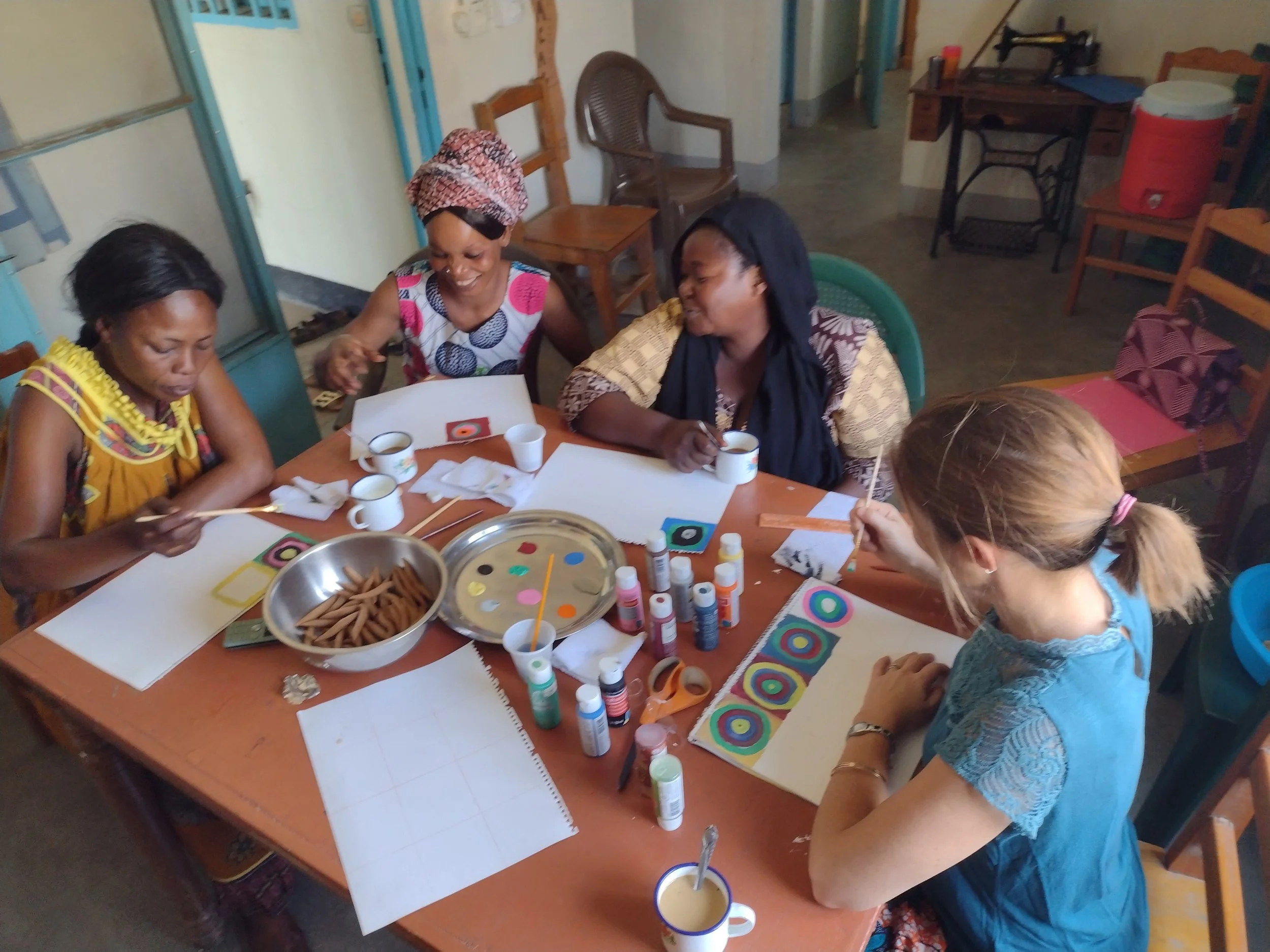CHAD
Population: 17.1M (Ireland 5.0M)
Capital City: N'Djamena
Language: Arabic and French, and over 120 indigenous
Religions: Islam (55.3%), Catholic Christianity (22.8%), Protestant Christianity (17.9%), None (2%), Folk religion (1.4%)
We interviewed David and Lucy Morrison, who serve with the Acacia ministry in N'Djamena.
Tell us a bit about Chad and what you love most about Chad.
Chad is the largest land-locked country in Africa and is rich in diversity: The landscape flows from the sub-tropical South to the Saharan North, home to over 130 distinct people groups, each with their own language, culture and religious expression. A Muslim-majority country with a significant portion of Christians and traditional religions too, there is a great deal to be learnt from the largely peaceful, tolerant way of life.
This learning happens sitting round communal pots of rich sauce and balls of stiff porridge called ‘boule’ for dipping. There’s always room for one more on the mat, be they family or a friendly stranger walking past, and you will never be sent away hungry or thirsty. This sense of community extends beyond religious divides too – On our street alone there is a rich mix of Christians, Muslims, traditional religions and none, all caring for and supporting one another.
Most of all, I love that Chad is considered ‘home’ by our eldest daughter. Of course, she’ll never be Chadian, but we love watching her enjoy the never-ending sandpit outside the front door with all the local kids and proudly asking in Arabic for bread at the corner shop.
Where is your favourite place in Chad that a traveller to the country must visit?
Chad is hugely diverse, with Desert Oasis to visit in the North and Zakouma National Park with its elephants and giraffes in the South. Sadly, this is empty promotion as we work in the Capital and haven’t had much chance to travel but are spoilt nonetheless by AIM’s retreat centre on the banks of the river Chari boasting grass (imported from Kenya no less!).
What are the particular challenges facing Chad at the present time?
The UN rates Chad as the third least-developed country in the world, with employment a rarity and usually going to family members and of the rich and powerful, most struggle to survive. Chad is experiencing its own cost of living crisis – The price of milk is 150% what it was a year ago. Now imagine that your family’s monthly milk supply was already costing 20% of your monthly income. This has been compounded by severe flooding and an unstable political climate over the past couple of years.
Chad is consistently listed as one of the most difficult countries in the world in which to be born a girl. Unemployment, domestic violence, female genital mutilation, child marriage 67% married before 18 and 30% before 15), high fertility rate (average 5.4 births per woman), all contribute to the grim outlook for the average Chadian woman.
How did you come to be serving God in Chad?
As a young teen I (Lucy) felt God put a very specific call on my life to work with women in prostitution and as a couple we decided even before we married that if God would have us together it was for the purpose of serving in mission. That led to a period of discernment based on our calls, gifts and passions, during which time we met the founder of the Acacia Vulnerable Women’s ministry. She opened our eyes to the unique opportunity Chad presented, but she also explained the harsh realities of life and that few are willing to go. She saw huge potential for a couple to serve in the ministry which excited us as our heart is not only to help women but also to see men’s hearts and lives transformed, particularly in the issue of oppression of women and more specifically prostitution.
What kind of work are you involved in?
We lead a ministry called ‘Acacia’ which exists to facilitate ‘Hope, Healing and a Future’ in the lives of vulnerable women in (or at risk of) prostitution and domestic violence. We are particularly active in one of the red-light areas of the capital city where we visit the ladies in their homes, often praying and studying the Bible with them. Some are invited to join our discipleship counselling programme that incorporates systematic Biblical teaching, trauma therapy and income-generating skills training. The vision is whole-life transformation which only happens when these ladies have their hearts renewed by Jesus from the inside out.
Tell us about the challenges and encouragements you have experienced in serving Christ and spreading the gospel in Chad.
Chadian culture lends itself well to outreach, even to someone not gifted in evangelism. Much of everyday life is spent in and out of each other’s houses and religion is a normal topic of conversation. The challenge is to take this acceptance of religion as a concept and invite Chadians into a personal relationship with Christ, and one that will see them filled with boldness to be counter-cultural.
How can we be praying for the people of Chad and your work?
There are unnumbered vulnerable women in Chad we want to reach but our heart is also to develop a strategic prevention side of the ministry among men and children. Currently our team is too small which sadly limits what we can currently do. Please pray with us for God to call others to join this vital ministry. If you think that might be you, please get in touch: lucy.morrison@missionafrica.org.uk
If you would like regular updates on David and Lucy’s work in Chad you can sign up for their prayer letter at the link below.





